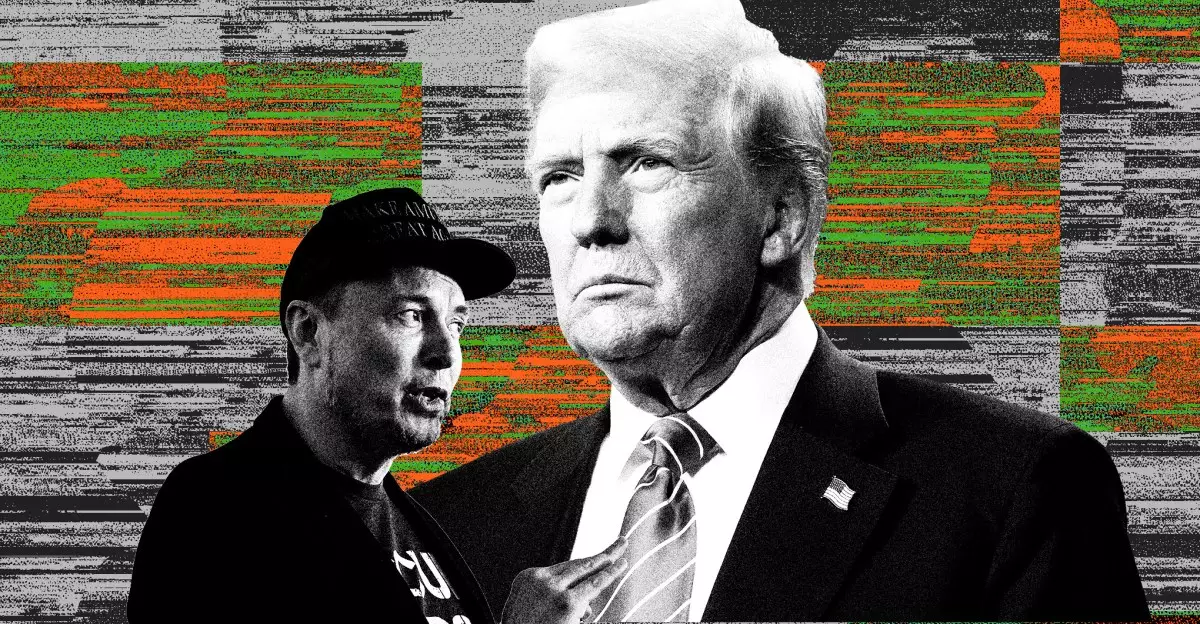In a significant turn of events, Tesla and SpaceX owner Elon Musk’s platform, known as X, has come to an agreement to compensate former President Donald Trump with roughly $10 million to resolve his lawsuit. This payment emerges from Trump’s ongoing grievances regarding the banning of his account following the tumultuous riots on January 6, 2021. The implications of this lawsuit ripple through not just the tech industry, but also the political landscape as Musk’s managerial decisions appear to entangle both realms.
Following the incidents at the U.S. Capitol, Trump launched legal actions against several key social media platforms, including Twitter (now rebranded as X), Facebook, and Google. Trump argued that their suspensions amounted to unjust censorship, claiming that these platforms operated under governmental influence. However, in a court ruling made in 2022, a judge dismissed Trump’s case against Twitter, indicating that the company did not meet the criteria of a state actor and that Section 230, which provides immunity to online platforms from liability for user-generated content, remained intact. This ruling not only underscored the legal protections social media companies enjoy but also highlighted the challenges that public figures face in contesting bans or suspensions.
Elon Musk’s involvement in the case extends beyond simply managing a social media platform. His substantial financial contributions—upward of an estimated $250 million towards Trump’s electoral campaign last year—have stirred concerns regarding the extent of his influence. Musk’s unique position as a billionaire and a media mogul raises questions about the intersection of private enterprise and public policy, revealing a potential conflict between profit-driven motives and democratic principles.
Interestingly, this settlement with X isn’t isolated. Just last month, Meta Platforms, the parent company of Facebook, decided to settle with Trump for $25 million. Likewise, Trump secured a $15 million settlement from ABC News related to a defamation lawsuit. These financial compensations spotlight the mounting pressures that social media companies face regarding content moderation policies, especially as public scrutiny intensifies over their influence on political discourse.
The Broader Implications for Social Media Regulation
As the social media landscape evolves, regulatory scrutiny will likely increase, compelling platforms to navigate the fine line between free speech and harmful content more cautiously. Trump’s lawsuits could set significant precedents that might reshape how tech giants enforce policies, especially in politically charged environments. For the legal community, these developments highlight the tensions between digital expression and the responsibilities platforms hold for user conduct, prompting future cases that may redefine the relationship between politicians and social media companies.
The evolving saga of Trump versus Twitter—and now X—underscores not just personal grievances but serves as a catalyst for broader discussions about the role of social media in modern democracy. With Elon Musk at the helm of X and his investments in political narratives, the intersections of technology, politics, and legality will continue to capture public interest and demand critical examination as this landscape progresses.

